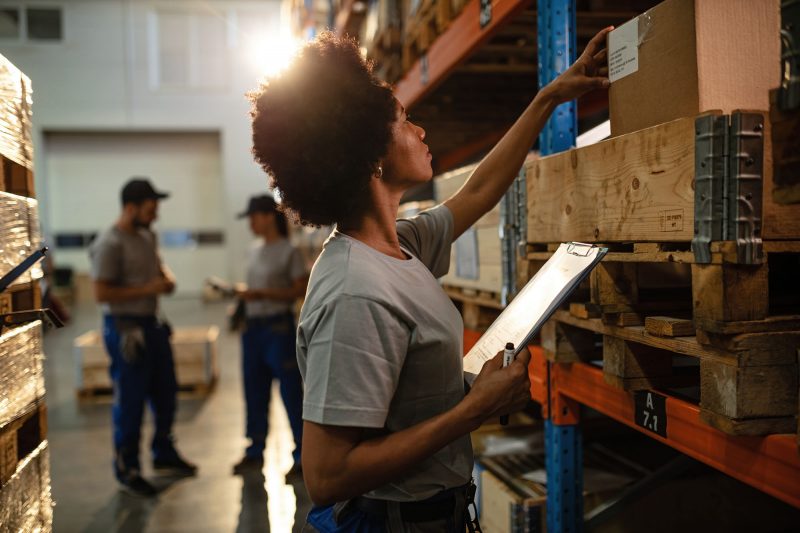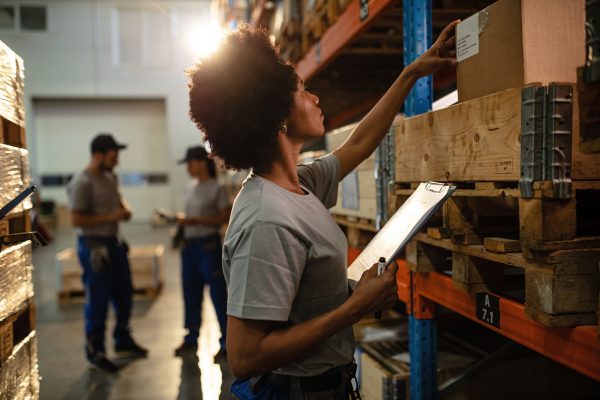Worker Demands During COVID-19 Deserve Our Solidarity

The National Labor Relations Act makes it illegal for employers to retaliate against employees for engaging in collective action to make your workplace better. If you have been retaliated against, you should get in touch with a local union, workers’ center or lawyer for advice.

Women are on the frontlines of defense against COVID-19 and its devastating consequences. For example; 66 percent of grocery store cashiers/salespeople and 63 percent of fast food and counter workers are women. Many of the workers in those jobs are women of color.
In the first COVID-19 relief packages, Congress bailed out corporations with very few strings attached. And yet, too many employers are abusing their power to deny workers personal protective gear, paid sick days, and other basic needs—and retaliating against them when they speak out. This is wrong, and it must stop. Working people are taking action; walkouts and strikes are gaining steam at Amazon warehouses across the country, in Whole Foods stores, among Instacart Shoppers, at fast food restaurants and more.
For example, Instacart workers face danger every day shopping for groceries. In order to protect themselves and their customers, they are seeking basic protective gear, extra pay, a change to the in-app default tipping option and expanded sick pay. Instacart workers are classified by the company as independent contractors, which means that the company has few obligations towards its workers by law. Collective action is one of the only levers workers have to get the company to respond.
Hundreds of fast food workers at chains like McDonald’s and Taco Bell staged a walkout demanding basics like masks, gloves, and soap, $3-an-hour premium pay, and two weeks of paid sick leave to workers exposed to COVID-19.
Amazon workers in over 50 warehouses have now tested positive for COVID-19 but Amazon has refused to adequately sanitize workspaces or provide workers with protection. When Amazon workers from New York to Detroit to Chicago staged walkouts to protest these conditions, Amazon fired one of the organizers of a NY-area walkout, Chris Smalls, and held a meeting attended by Jeff Bezos to discuss an active smear campaign against Mr. Smalls. New York Attorney General, Leticia James, is exploring legal action against Amazon and a coalition of unions, workers and lawmakers are calling on Amazon to enact more robust measures to keep their workers safe, including covering child care expenses for employees and other demands.
We have to make sure that federal and state policy doesn’t let these employers off the hook, including expanding leave requirements in the next federal COVID-19 package to include large employers. We also must ensure anyone whose essential role means they must continue in-person work through the pandemic gets adequate protective gear. We need beefed up enforcement efforts to ensure that employers don’t exploit this crisis to engage illegal behavior like wage theft. And we need Congress to create effective watchdog mechanisms to prevent companies from using this moment to enrich themselves at the expense of their workers.
The women workers and others who are taking on enormous risk deserve our solidarity. In addition to the huge number of women on the front lines of this crisis, we are already hearing alarming statistics about the effects of COVID-19 on communities of color. These disparities must not be made worse through employer inaction. This is not the moment to relax our attention to what rights working people already have and need—it is a moment to honor what the workers on the front lines – largely women – are asking us for.





